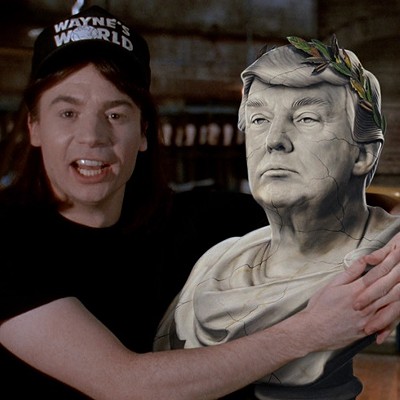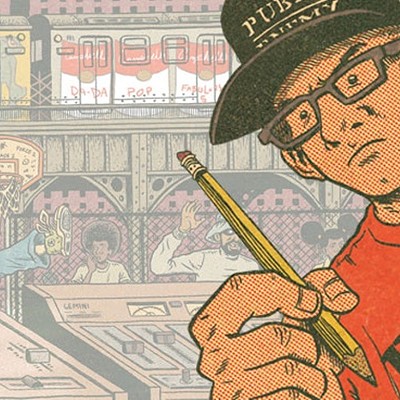Director Clint Eastwood's new movie is pretty much like his last few -- somber, stylish, too long, less than meets the eye -- but especially like one of them: In Million Dollar Baby, and now in Changeling, Eastwood gives strong roles to strong actresses and examines a woman's struggle against the patriarchy.
Million Dollar Baby was more contemporary, so Hilary Swank's character didn't have as many social forces to fight along with her opponents in the boxing ring. But Changeling begins in 1928, and when Christine Collins (Angelina Jolie) finds that it's her against the men of the Los Angeles police force, you know it's going to be a one-two punch.
Christine is a single mother (hard today, harder back then) with a good job as a supervisor for the phone company. She glides among the operators on roller skates (an apt metaphor), calming angry electronic voices. One day, she's called to work an extra shift, so she leaves her 9-year-old son, Walter, home alone. When she returns, he's gone, and the Los Angeles police can't find him.
Then, a boy turns up in Illinois. The police -- uniformly corrupt, and embarrassed by their inability to find Christine's son -- decide that he's Walter and "return" him to Christine, who knows he isn't. The conspiracy that follows involves even a doctor (the wonderful stage actor Peter Gerety) who explains how Walter, in six months, could have grown three inches shorter. When Christine gets too antagonistic, they toss her in a mental hospital, where a manipulative shrink (Denis O'Hare, another fine theater star) declares her to be crazy because she insists she's not.
This would all be enough for one movie. But Changeling is based on fact, so we need to meet a radio evangelist (John Malkovich) on a crusade to stop police corruption, and a mass murderer who specializes in children. These characters are relevant, and sometimes effective, although toward the end we get lots of repetition, as well as stuff we've seen before: booby-hatch horrors, corruption trials, dead man walking. Changeling finally feels like a 100-minute movie stretched into a mini-series and then condensed back into two hours and 20 minutes.
At his best, Eastwood concentrates our attention, without getting preachy, on the way men cast off the lives and minds of women. His movies always have ample words, but as usual here, it doesn't feel like anyone says anything. The dialogue is stilted, except for Christine's: She talks with an easy confidence that almost sounds contemporary.
Jolie's deeply moving performance helps Changeling to cut through its muted blue-gray color scheme and murky lighting. She's best when she's dynamite with a very short fuse, and she explodes with tears -- convincingly, and quite movingly -- every 10 minutes or so. Christine has dimension, but Changeling doesn't, so it's like watching a movie at war with itself. One thing's for sure about Eastwood, though: 21st-century politics aside, he's not afraid to take on corruption and sexism in 1928.















